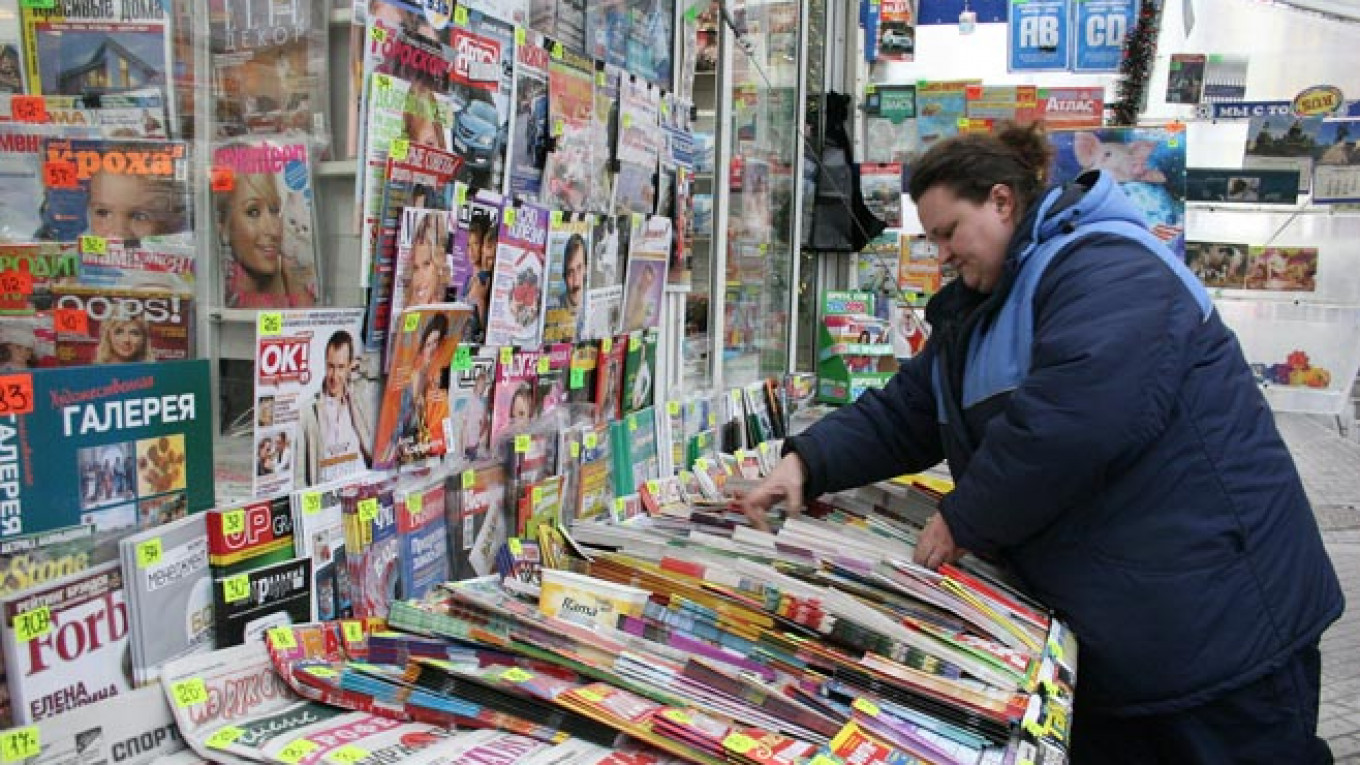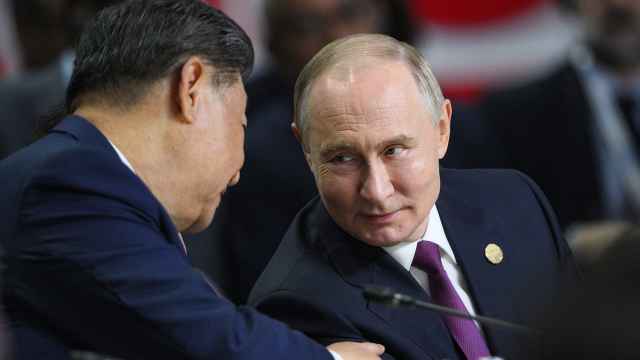Russian journalism has never really won the respect of its readers or the government — a failing that keeps it from developing into the force for good it is in other nations.
The quality of journalism education is in part to blame. Contemporary Russian journalism unfortunately remains influenced by its dual legacy of reconstituted Soviet-era courses, and post-Soviet desire for profit. These Soviet-era courses focus on writing style and general education, rather than on sharp ethics and reporting skills. After all, neither is really required when the graduate goes on to work at Rossia-1, RT, Channel One or any other huge Russian media.
Journalism in Russia now only requires a keen eye for profit. Instead of serving the public interest, Russian media primarily focuses on either the owner's bottom line or the interests of the state, or, recently, both.
International organizations have made inroads in the last 25 years, during which professional foreign publishers like Derk Sauer and Hearst Co. have helped develop Russian media. The impact of such organizations is noticeable, especially Internews, George Soros' sponsored education program for post-Soviet journalists — but it is limited.
Both journalism schools and newspaper management methods are consequently corrupt and underdeveloped, although both are envious imitators of the West — they want to "look" like other country's institutions. But as with many things in Russia, this is just a mirage.
Contemporary Russian journalism looks like a patchwork of the several epochs it has just lived through. The observer can easily find remnants of Soviet-style journalism, artifacts of the relatively free Yeltsin era, the frivolous journalism of Putin's early years and the more stern style of Putin's later years. All this in addition to blatant propaganda and «native advertising», called PR, payola, dzinsa or otherwise, which are essentially corporate press releases converted into "articles" for a fee that is charged by either the journalist, or the media outlet, or both. You can find, sometimes on the pages of the same magazine or website, perfect examples of both independent investigative journalism and naked propaganda.
The situation has gotten so bad that Alexei Volin, the deputy communications and press minister, a few years ago sincerely explained the purpose of journalist training as teaching students to be loyal to their employer, ready to write whatever "uncle" tells them to write, whether they agree or not.
The real victim of the condition of Russian journalism, though, is not even the state. It is the consumer. The Russian media consumer is convinced that every act of communication is inspired by some kind of commercial, political or criminal interest. It is hard to blame them, as this conspiracy theory is backed by many examples from the Soviet past and the early years of capitalism.
The average Russian consumer does not and cannot associate journalism with the pursuit of the common good. Despite many examples of principled journalism, the image of journalists as professionally dishonest is supported by all state, municipal and nongovernmental leaders, all of whom are firm believers that all journalists are corrupt.
Society consequently treats journalism and mass media as if it were merely an entertainment form. And if society does not care much about the principles and tasks of journalism, if society sees no meaning in press independence and is subjugated to state-controlled media — is there anything a small group of Western-minded, properly trained and ethically motivated journalists can do?
Well, they can fight the odds and continue serving those minority of people that support their professional work — like what the folks at Novaya Gazeta, TV-2 Tomsk, Vedomosti and Dozhd television are doing. This sort of mass media serves communicative, integrative and watchdog functions, rather than fulfilling society's negative image of it.
Opportunities for this type of journalism are narrowing though. Worst of all, this "fight" forces journalists to work with activists, putting the independence of reporting at risk. In any case, the Russian state knows what it wants to communicate and does not intend to allow partisans to do the same. This looks like a total dead-end.
Then again, the situation has looked hopeless before. In 1986 when I got my first job in a newspaper, Soviet media looked as solid as the granite foundation of Karl Marx's statue in front of the Bolshoi Theater. Censorship functioned, the party was dictating the agenda and the state controlled the media. Five years later, there was no Soviet Union. Journalists working in 1986 could not have imagined that their work would contribute to the fall of the "Evil Empire," or what President Vladimir Putin termed "the largest geopolitical catastrophe of the 20th century."
Vasily Gatov is a media researcher, analyst, media investment expert and a board member of WAN-IFRA.
A Message from The Moscow Times:
Dear readers,
We are facing unprecedented challenges. Russia's Prosecutor General's Office has designated The Moscow Times as an "undesirable" organization, criminalizing our work and putting our staff at risk of prosecution. This follows our earlier unjust labeling as a "foreign agent."
These actions are direct attempts to silence independent journalism in Russia. The authorities claim our work "discredits the decisions of the Russian leadership." We see things differently: we strive to provide accurate, unbiased reporting on Russia.
We, the journalists of The Moscow Times, refuse to be silenced. But to continue our work, we need your help.
Your support, no matter how small, makes a world of difference. If you can, please support us monthly starting from just $2. It's quick to set up, and every contribution makes a significant impact.
By supporting The Moscow Times, you're defending open, independent journalism in the face of repression. Thank you for standing with us.
Remind me later.








